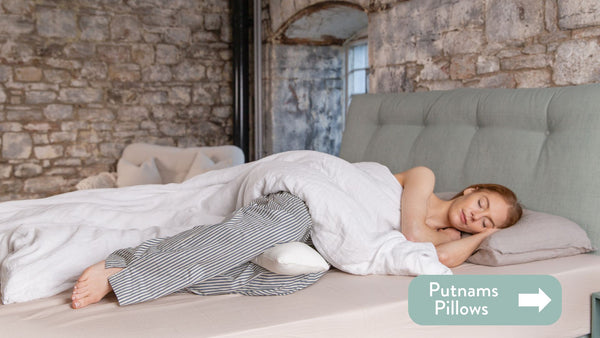
The Science of Sleep: How Understanding Your Sleep Cycle Can Improve Your Health
Sleep is more than just rest; it’s a critical element for maintaining overall health and well-being. Understanding sleep cycles can provide profound insights into how our bodies rejuvenate and repair themselves during rest.
Here we explore the intricacies of sleep cycles, their impact on health, and how you can improve your health with sleep.
What Are Sleep Cycles?
Sleep cycles refer to the recurring patterns of sleep that our brains go through every night, typically lasting about 90 minutes each. Each cycle consists of several stages, categorized into Non-REM (Rapid Eye Movement) and REM sleep.
Sleep Stages Explained:
- Stage 1 (Light Sleep): Transition between wakefulness and sleep.
- Stage 2 (Light Sleep): A period of deeper sleep where heart rate slows and body temperature drops.
- Stage 3 (Deep Sleep): The most restorative stage, crucial for physical recovery and growth.
- REM Sleep: Characterized by vivid dreams and active brain function, essential for cognitive processes such as memory and learning.
Understanding sleep cycles involves recognizing that we cycle through these stages multiple times each night, which is fundamental for achieving restful sleep.
The Importance of REM and Non-REM Sleep
Both REM and Non-REM sleep serve vital functions. Non-REM sleep, especially Stage 3, is crucial for physical health, while REM sleep is essential for mental health. The benefits of understanding sleep cycles are significant:
- Physical Health: Stage 3 deep sleep supports muscle repair, tissue growth, and immune function.
- Mental Health: REM sleep helps in processing emotions, problem-solving, and memory consolidation.
Putnams sleep products, such as their body pillows and wedges, can assist in maintaining comfortable positions that enhance both REM and Non-REM sleep quality.
How Sleep Cycles Affect Physical Health
Healthy sleep cycles are integral to physical health. Here’s how sleep stages and health are interconnected:
- Immune Function: Consistent deep sleep boosts the immune system, helping the body fend off infections.
- Weight Management: Proper sleep regulates hunger hormones, reducing the risk of obesity (BMJ).
- Cardiovascular Health: Maintaining healthy sleep cycles reduces inflammation and lowers the risk of heart disease and stroke (BHF).
Using supportive sleep products from Putnams, like their orthopedic cushions, can help maintain proper spinal alignment, contributing to better sleep quality and overall health.
The Connection Between Sleep Cycles and Mental Health
The health benefits of proper sleep extend to mental well-being in numerous ways:
- Mood Regulation: Adequate REM sleep helps regulate emotions, reducing the incidences of depression and anxiety. Sleep is just as critical for mental health as it is for physical health.
- Cognitive Function: Quality sleep enhances memory, creativity, and problem-solving skills. Cognitive decline can be significantly reduced with healthy sleep protocols.
- Stress Reduction: Proper sleep lowers cortisol levels, aiding in better stress management.
Putnams’ ergonomic sleep solutions, such as their memory foam pillows, provide superior comfort that can help reduce stress and promote deeper sleep.
Common Sleep Disorders and Their Impact on Sleep Cycles
Sleep disorders can severely disrupt normal sleep patterns and health. Common issues include:
- Insomnia: Difficulty falling or staying asleep, leading to fragmented sleep cycles.
- Sleep Apnoea: Brief interruptions in breathing during sleep, disrupting REM and deep sleep. What is sleep apnoea?
- Restless Legs Syndrome: Uncontrollable leg movements affecting the ability to reach deep sleep. Restless Legs Syndrome (RLS) can also be referred to as Willis-Ekbom disease.
Addressing these disorders is critical for restoring healthy sleep cycles. Putnams sleep aids, like their leg spacers, can provide relief for conditions like Restless Legs Syndrome, promoting uninterrupted sleep.
Tips for Optimizing Your Sleep Cycles
Enhancing health through sleep starts with optimizing sleep habits. Here are some tips:
- Maintain a Regular Sleep Schedule: Go to bed and wake up at the same time every day.
- Create a Relaxing Bedtime Routine: Engage in calming activities like reading or meditation before bed.
- Limit Exposure to Screens: Reduce screen time at least an hour before bedtime to avoid blue light interference.
- Create a Comfortable Sleep Environment: Use high-quality bedding and sleep products, like those from Putnams, to ensure your bedroom is conducive to sleep.
The Role of Diet and Exercise in Sleep Quality
Diet and exercise significantly influence sleep quality and cycles:
- Balanced Diet: Foods rich in magnesium and tryptophan, such as nuts and turkey, can promote better sleep. A balanced diet is as important to your resting and rejuvenation as it is to your energy levels and daytime activities.
- Regular Exercise: Engaging in physical activity helps regulate the sleep-wake cycle, making it easier to fall and stay asleep. However, avoid vigorous exercise close to bedtime.
Incorporating Putnams’ supportive sleep accessories can complement these lifestyle adjustments, ensuring that your body receives the support it needs during rest.
Practical Tips for Integrating Diet and Exercise for Better Sleep
- Eat a Balanced Dinner: Include magnesium and tryptophan-rich foods in your evening meal. Avoid heavy, spicy, or acidic foods that can cause discomfort and disrupt sleep.
- Monitor Caffeine and Alcohol Intake: Limit caffeine consumption in the afternoon and evening. If you drink alcohol, do so in moderation and avoid it close to bedtime.
- Exercise Regularly: Aim for at least 30 minutes of moderate aerobic exercise on most days, but avoid vigorous workouts late in the evening.
- Practice Relaxation Techniques: Incorporate activities like gentle stretching, yoga, or meditation in your pre-sleep routine to wind down.
When to Seek Professional Help for Sleep Issues
While lifestyle changes and products like Putnams can significantly improve sleep quality, some issues may require professional intervention.
Seek help if you experience:
- Persistent difficulty falling or staying asleep
- Excessive daytime sleepiness
- Snoring, choking, or gasping during sleep
- Uncontrollable leg movements at night, restless leg syndrome
Professional assistance can provide targeted treatments such as cognitive-behavioral therapy for insomnia (CBT-I) or medical interventions for sleep apnoea.
"Sleep is an investment in the energy you need to be effective tomorrow". - Tom Roth
Understanding sleep cycles is essential for improving overall health.
By recognizing the importance of sleep cycles and implementing strategies to optimize them, you can enjoy the myriad health benefits of proper sleep.
Whether through lifestyle adjustments or using high-quality sleep products like those from Putnams, prioritizing sleep can lead to enhanced physical and mental well-being. Improve your health with sleep today and reap the rewards of a well-rested life.

















Leave a comment